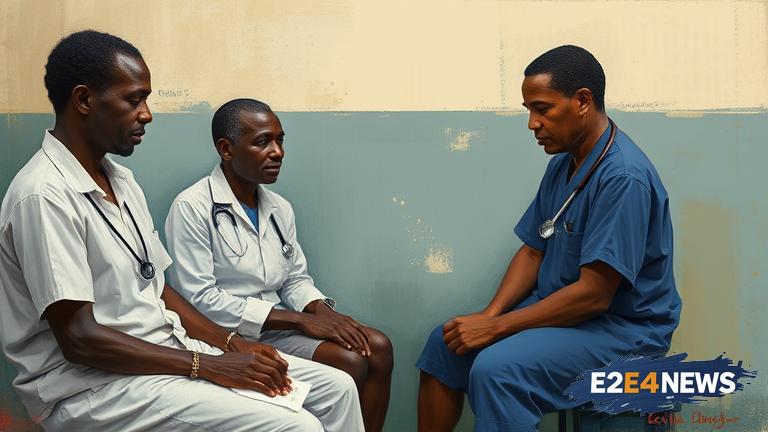The issue of Zimbabweans’ access to healthcare in South Africa has been a contentious one, with many Zimbabwean nationals facing challenges in accessing medical care in the country. However, according to Jessie Majome, a former Zimbabwean parliamentarian, Zimbabweans have the right to access healthcare in South Africa, as enshrined in international human rights laws and the country’s constitutional obligations. Majome argued that the South African government has a duty to ensure that all individuals, regardless of their nationality, have access to essential healthcare services. She cited the Universal Declaration of Human Rights, which states that everyone has the right to a standard of living adequate for their health and well-being, including access to medical care. Furthermore, the African Charter on Human and Peoples’ Rights, to which South Africa is a signatory, guarantees the right to health and healthcare services. Majome also pointed out that the South African Constitution enshrines the right to healthcare as a fundamental human right, which applies to all individuals, including foreigners. Despite these legal obligations, many Zimbabweans in South Africa face significant barriers in accessing healthcare, including lack of documentation, language barriers, and discrimination. Majome emphasized that it is the responsibility of the South African government to ensure that its healthcare system is inclusive and accessible to all, regardless of nationality or immigration status. She called on the government to take concrete steps to address the challenges faced by Zimbabweans in accessing healthcare, including providing training for healthcare workers on cultural sensitivity and language skills. Additionally, Majome advocated for the establishment of a national healthcare policy that prioritizes the needs of vulnerable populations, including migrants and refugees. The issue of Zimbabweans’ access to healthcare in South Africa is not only a matter of human rights but also a public health concern. The spread of diseases such as HIV and tuberculosis is a significant risk when individuals are unable to access medical care. Moreover, the lack of access to healthcare can exacerbate existing health conditions, leading to increased morbidity and mortality rates. Majome’s defense of Zimbabweans’ right to healthcare in South Africa is a timely reminder of the need for governments to prioritize the health and well-being of all individuals, regardless of their nationality. The South African government must take immediate action to address the challenges faced by Zimbabweans in accessing healthcare, including providing additional funding for healthcare services and implementing policies that promote inclusivity and accessibility. The international community must also play a role in supporting the South African government’s efforts to ensure that all individuals have access to essential healthcare services. In conclusion, the issue of Zimbabweans’ access to healthcare in South Africa is a complex one, requiring a multifaceted approach that prioritizes human rights, public health, and inclusivity. By working together, governments, civil society organizations, and individuals can ensure that all individuals, regardless of their nationality, have access to the healthcare services they need to live healthy and dignified lives. The right to healthcare is a fundamental human right, and it is the responsibility of governments to ensure that this right is respected and protected. As the world continues to grapple with the challenges of migration and healthcare, the case of Zimbabweans in South Africa serves as a reminder of the need for compassion, empathy, and a commitment to human rights. Ultimately, ensuring that all individuals have access to healthcare is not only a moral imperative but also a necessary step towards creating a more just and equitable society. The South African government must prioritize the health and well-being of all individuals, including Zimbabweans, and work towards creating a healthcare system that is inclusive, accessible, and equitable. By doing so, the government can ensure that all individuals have the opportunity to live healthy and productive lives, regardless of their nationality or immigration status.
